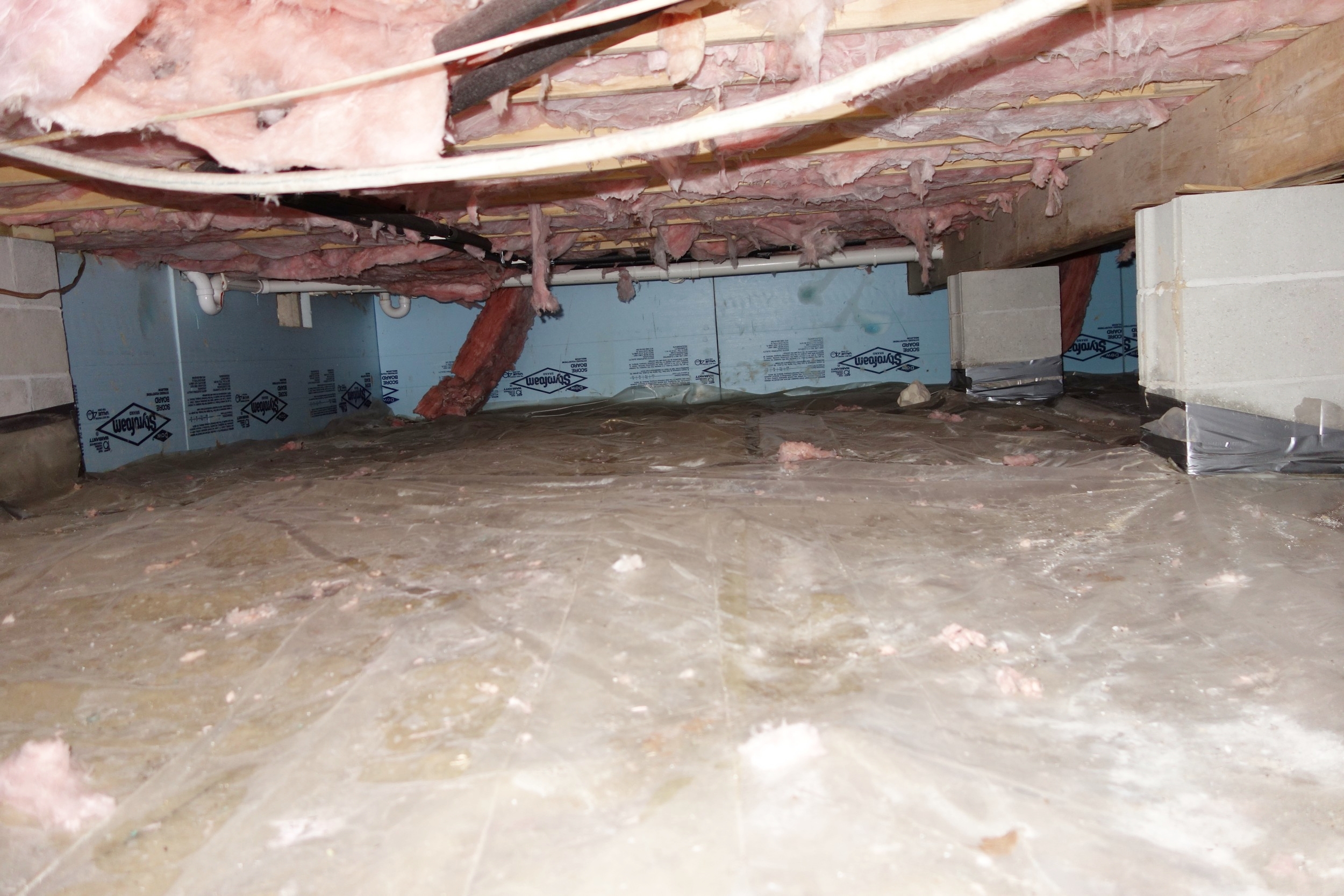Be sure to.
Insulate floor no crawl space.
Insulation is to keep heat from moving from one place to another so if the crawl space is heated then the insulation is not needed.
In those days common building practice was to insulate the floor above the crawl space and to leave the crawl space s wall vents open so any moisture buildup would vent to the outside a.
A crawl space with a concrete floor and no water problems may only need foundation wall insulation and a crawl space dehumidifier conditioned air or both depending on if there is an vapor barrier installed under the concrete floor.
Unless there are excessive moisture problems in the crawl space use unfaced fiberglass batts to insulate the walls.
Crawl space insulation as a part of overall home air sealing and insulation helps maintain your entire home s energy efficiency without insulation heat and cool air are easily lost through the floor.
Department of energy recommends r 11 3 insulation under floors in warm climates and an r 25 6 to 8 in cold climates.
Proper crawl space insulation also can prevent your crawl space from becoming a moist environment that grows and harbors mold and mildew controlling crawl space temperature and moisture is a dual process that works toward a common goal.
A temperate lower area that will keep upper floors warm while your home s foundation remains in sound condition.
To take the chill out of a crawl space it s usually best to insulate the exterior masonry walls rather than the underside of the floor above.
A crawl space under a house helps protect against certain pests but a crawl space with abundant moisture can invite problems including mold wood rot and vermin.
Floor insulation for moderate climes popular reads.
Determine if you need conditioned air a dehumidifier or both add conditioned air if you have problems with.
That doesn t mean it s a problem but it isn t needed.
That s especially true when heating ducts or pipes pass through the space.
Insulation also helps to preserve the air quality and reduce energy costs.
In moderate or dry climates without the threat of sustained subfreezing temperatures insulation between floor joists makes sense.
If as you say the floor is only dirt covered with a vapor barrier then there would be heat loss there.

